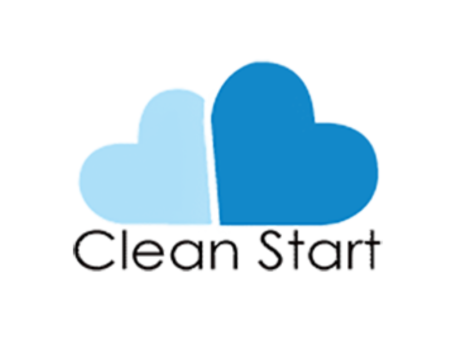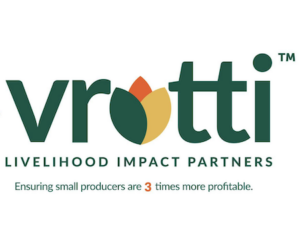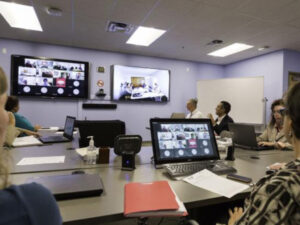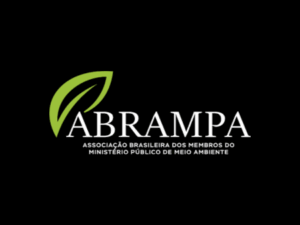Clean Start Kenya supports women and children involved with the criminal justice system in Kenya while advocating for policy and legislation change.
Teresa Njoroge of Clean Start Kenya spoke with Lissa Harris on April 13, 2023. Click here to read the full conversation with insights highlighted.
Lissa Harris: Can you please introduce yourself and your organization and talk a little bit about the problem that you’re trying to solve?
Teresa Njoroge: My name is Teresa Njoroge, I’m the founder and the CEO of a social enterprise called Clean Start Solutions, and we work at the intersection of poverty and the criminal justice system in Kenya. We are addressing the criminalization of poverty. At Clean Start, we believe that poverty is not a crime and justice begins where inequality ends. We have too many women, girls, and children in prisons across Kenya and on the African continent, who are behind bars due to petty offenses that can be solved through empowerment and alternative desperate resolution as opposed to putting these women involved behind the bars.
Lissa Harris: How do you do this work? Are you working with other organizations, with communities? Are you working directly with women in the criminal justice system? Can you talk about who benefits from your work and how do they directly benefit?
Teresa Njoroge: Our direct beneficiaries are the women, girls, and children who have been impacted by the criminal justice system. They’re in there purely because they’re poor and marginalized, and that’s because they don’t get any legal representation, they have no decent means of livelihood and that’s how they end up being behind bars. We empower them through our programs and upon release from prison, we ensure that they have a sustainable means of livelihood by investing in economic opportunities for them, which they engage in and are therefore able to provide for themselves, their families and their children. While they are our direct beneficiaries, we also have to work and reform the criminal justice system, because if we don’t, then it continues to channel these vulnerable and poor women over and over again.
We’re working with the Kenya Judicial System, the National Police, the office of the prosecution, the National Council of the Administration of Justice in Kenya, the court use committees and many other criminal justice actors and stakeholders within that ecosystem to collaboratively reform the system through reforming the sentencing guidelines and embracing alternative dispute mechanisms as opposed to heavily using custodial sentencing and using the wrong classification of petty offenses, which is a byproduct of inheritance from the colonial system, which no longer serves modern day free Kenya.
Lissa Harris: Is it fair to say you’re working on two scales at the same time? You’re both working on shifting some of these policy levers but also providing direct service to women and children who are behind bars or who are recently released from the system and trying to intervene in a positive way?
Teresa Njoroge: Indeed, it is two pronged. The urgent work of getting these women from the pits that they are in and then of course doing the long-term work of policy and legislation change.
Lissa Harris: Can you talk about why you focus specifically on women and children in the system when you’re talking about criminalizing poverty? What’s the importance of gender and youth here?
Teresa Njoroge: That’s a very good question, Lissa. 90% of the women who are in prisons are mothers and the sole breadwinners of their families. What that means directly is that immediately, when mom goes to prison today, the children are left on their own because we do not have a social security system that takes care of these children. So, given the resources that we have in our capacity, the urgency is to intervene with the women so that it also benefits the children as a secondary beneficiary of the work that we are doing.
The women are also the caregivers in our societies and in our communities. When they are empowered and out of the criminal justice system, they’re able to benefit their families and extended families as well, as is with the African culture. Our programs are also replicable to men. And speaking from a point of first hand experience, when women come together, when they lead the communities and they think about solutions for everyone, it’s the women who came together to come up with the solutions and are now passing along the solution to be replicated by the men in the men’s prisons.
Lissa Harris: What makes your approach distinctive from other organizations that are working on similar problems? What makes you different?
Teresa Njoroge: Clean Start is an organization that’s the first founded social enterprise that’s run by formerly imprisoned women in Kenya. We are the only social enterprise that employs 90% formerly imprisoned women to lead with the solutions. We strongly believe that those who are close to the problem are also very close to the solutions. The women are leading by showing where the gaps are from their own firsthand experiences within the criminal justice system. It’s also very peer led. The women go into these prisons and show the other women, who they left behind, how to get off the criminal justice system and get empowered. They’re welcoming them and inviting them back into society. It’s the first hand impacted women who are out there advocating and showing the criminal justice actors where the gaps are and how best to serve those who are impacted by the system.
Lissa Harris: Can you share an example, whether that’s as small as an individual or maybe a larger community story, that really illustrates the impact of the work that you’re doing?
Teresa Njoroge: Indeed. For the last seven years, we have directly invested in the lives of 4,000 women who are now empowered through the various economic hubs that Clean Start has set up in Kenya, and are looking into scaling this work across the African continent. There is a group of five women who were the very first users of Clean Start Solution while in prison. This group of women have now come out from the leadership part of Clean Start, into program management of the solution. They’ve come up with a self-curated program called the Leadership Program and they are using this program as formerly imprisoned women in Kenya to scale the manual that they’ve come up with to other formerly imprisoned women, not just in Kenya but in South Africa, Malawi, Uganda, Tanzania, and so on and so forth. These women have first hand experience being impacted and they have come up with a manual that’s now been considered as an alternative to custodial sentencing in Kenya. That could be a very huge win. Not to mention the hundreds of other women who are now well empowered, taking care of themselves and in turn taking care of the needs of their children and the stories of many.
Lissa Harris: What lessons and insights could be taken from your work that other people could use and learn from?
Teresa Njoroge: The first one is that it’s really important to engage those who we are working to empower because they’re very close to the solutions. As experts, I implore all those who are out there doing incredible social work and offering justice to really be proximate to those who are impacted and elevate their voices, especially on the decision making table, because they know the best the solutions that would make a difference. Way too many times we see actors come up with solutions and then force them onto those who are impacted. Bringing them to the decision making table is very key.
The second one I would implore on is collaboration. There are too many silos. If we could find ways of making sure that the baton is being passed from one level to the next and consider ourselves as equal partners, whether you’re coming in as a funder or as a doer, or in government, we all need each other, and the power imbalances really act against what we’re trying to strive to achieve. Collaboration and seeing each other’s work and contribution to the puzzle as equal is an insight that I’d love to see implemented.
Lissa Harris: How do you measure your success? What’s the evidence that you look toward to check whether you’re making progress?
Teresa Njoroge: The rates of recidivism in Kenya were at 52% when we started this work. Right now, through our work, the recidivism rates have fallen down to 26%, which is incredible to see.
Lissa Harris: Just within your program?
Teresa Njoroge: Yeah, just within our program. And this is truly incredible to see. These people primarily went into prison because they were poor and did not have economic or education opportunities. But they are coming out to opportunities that Clean Start has created and that provides hope. There is dignity, there is decent sustainable means of livelihood. These performance indicators and success indicators really encourage us to keep doing this work, knowing that when these women, girls and children come out of prisons, they have places to live, they have houses where they feel they’re welcome, they’ve got opportunities where they feel they’re needed and are contributing to building the economy.
That is on the side of the direct beneficiaries, but there is also the government criminal justice agencies and actors adopting our formula and applying it. Whether it’s in rehabilitation, whether it’s when they’re considering sentencing reviews or any other reforms within the criminal justice system. That application of our formula is a model of success because we believe that we have a humane approach towards poverty related issues that should not be resolved with a criminal justice lens.
Lissa Harris: There must be some tension in that when you’re working within the criminal justice system, with partners in the criminal justice system or groups that have an adversarial relationship. What pushback do you get from your government and criminal justice system partners in this work and how do you work to resolve that?
Teresa Njoroge: Initially the pushback was a lot. There was a lot of skepticism, especially these solutions being pushed by the formerly imprisoned women who for a very long time have been stigmatized and looked at as criminals even when they have come out of the system after paying their debt to society. We have continued to advocate and create awareness that we cannot continue dealing with poverty related petty offenses, non-violent crimes, with a criminal justice approach and branding those who are poor as criminals. And the more we’ve advocated within the corporate world, within government agencies, within communities, that if we provide empowerment to deal with those who are poor amongst us, because they’re not going to go hungry and stay in the streets and wait to die, they are going to find ways that they can feed themselves and their children, the more support we’ve seen.
Any one of us would do whatever it takes to feed themselves or their children when push comes to shove, whether that means they took a soda or a piece of bread from your shop, they were hungry. And they were hungry because we did not provide equal economic opportunities or equal education opportunities for each and every person. We need to look at the cause and the root problem and not deal with the symptoms. So, the more we advocate, the more the criminal justice actors, the community, and the corporate world are leaning in and saying, “What part can I play to make it better for those who make up the bottom of the pyramid?” the better it will be for all of us. Continued advocacy and the creation of awareness is truly helping and we’re finding a lot of corporations supporting our work, whether that is by employing some of the women or offering scholarships to some of these girls who are coming out of the juvenile justice system. Poverty deserves empowerment and not punishment, and they’re listening and they’re doing something about it.
Lissa Harris: Sometimes we learn just as much from things that don’t work as things that do. Is there something you can describe that you tried that didn’t work, that you learned something important from that maybe others could learn from also?
Teresa Njoroge: Saving those who have been impacted by the criminal justice system doesn’t work when you use a rescue approach. After seeing how overwhelmed these women and girls are, initially we would rescue them and offer all kinds of support, but it doesn’t work. At the end of the day, nothing is for free. People have to get up and work for whatever it is, whether it’s income, whether it’s opportunities. You’ve got to do your part, you’ve got to play your role to earn it.
Even if this woman is at the very edge, she’s got all these children, she’s got rent to pay and you can see she has absolutely nothing, rescuing her from her situation by paying the rent, paying school fees doesn’t work. Show them how to fish, don’t give them the fish. We’re no longer rescuing the women. What we do is we’ve set up economic hubs and we say to the women upon release from prison, “Come and work at the economic hub.” You earn an income and you learn how to save and start your own. It’s the only way it works.
Lissa Harris: Where do you find the line that works between providing resources to people that need resources to even begin to go on that journey and not providing so many resources that they don’t take charge of their own story?
Teresa Njoroge: We begin the investment heavily while they’re still in prison and not needing so much support in terms of accommodation, food. Their basic necessities are being taken care of even though in a very difficult environment in the prisons. We invest so heavily in them in such a way that when she’s leaving the correctional institution, we’ve dealt with most of her trauma, we’ve dealt with her confidence, her self-esteem, her awareness of her vision and what she’d like to achieve in life. When she’s leaving that institution, she will take off with very little support, if at all, any. It’s an investment in self. When the mind is taken care of and you are healed, there’s nothing you wouldn’t be able to achieve when your attitude is right. But if that doesn’t happen, then it becomes very difficult when they come out and have so many responsibilities on the outside that they need to take care of.
It’s that heavy deep investment in self for this person to be able to stand on their own and run independently. Unfortunately, when you speak to those who would support us to do that, funders and other people within the ecosystem, they want you to scale in terms of numbers. But we need to look at scale from depth, because it doesn’t make sense for me to empower a million women who are coming out and not be ready to be in charge of their lives. It’ll cost us so much more. We’d rather go deep with, say, 100 in a quarter, but we know that when they leave, they’ll be able to take care of themselves and won’t need so much investment while they’re on the outside. I’d say to funders and other players within the ecosystem, let’s not be so hard on numbers. Scale means different things and not just numbers.
Lissa Harris: That’s a good way to put it. I wonder, and this leads into the next question, which is talking about challenges that you haven’t yet been able to overcome. So, scale is one of those kinds of challenges. How do you take a program that works on a small scale and either replicate it or grow it to serve more people? What kinds of problems have you not really been able to overcome that are more wide scale that way?
Teresa Njoroge: Indeed, scale is one of those, and it’s a symptom of the fact that this is a very new area in Kenya and on the African continent. There are just so many competing challenges. Education, healthcare, we’ve not yet conquered those. And so, when you come to the table to talk about those who have been impacted by the criminal justice system, it’s seen as a secondary problem. But it’s not a secondary problem as long as we’ve not sorted out education and healthcare. This is an urgent problem and these are the people who are paying the price of all the problems you’re considering as important problems to be taken care of right now. We cannot say to individuals, “You wait your time until we’ve dealt with the other problems in society.” That’s very unfair. So, it’s having to pitch twice as hard as anyone who’s trying to get support for education, for food, for health. Those are acceptable. We need to get this to be acceptable as well.
It’s the same in our communities and in our societies. Kenya and the African continent are still very patriarchal and women are not given the due attention they deserve. These are individuals who have their own rights like everyone else, and they are so heavily stigmatized. A woman will come out of prison in Kenya and be so stigmatized to a point where she’s depressed and commits suicide, while her male counterpart will come out of prison and be deemed as a hero. It’s really unfair and unequal. We’re dealing with women who are impacted by the criminal justice system, but truly we’re dealing with women who are dealing with very many layers of the broken systems in society, and we’re getting the end of that conveyor belt, everything added up together. It’s dealing with just so many layers.
Lissa Harris: Can you talk about how you’re working to advance systems level change on a broader level?
Teresa Njoroge: Yes, indeed. We are getting into, for instance, the Kenya Judicial Academy, the academy that trains the magistrates and the judges. What we want to see there is the magistrates and judges who make the decision of whether a woman or a girl, or any person for that matter, is going to prison or not understand the important role that the judicial system and institution plays in deciding which way a community and a society goes, as far as how conflict is resolved. When you have inherited colonial laws, how do we begin to decolonize our approaches? Be it economic, be it decolonizing our criminal justice system and so on. We need to see system change as far as the criminal justice system is concerned and how it approaches decolonizing petty offenses and resolution of conflict on the African continent.
Africa as a whole has its own inherent ways of resolving its issues, and we can’t borrow ways from the west that are not suitable with our culture and believe that it’s going to resolve our problems. We need to use our innate ways of resolving our issues. That’s just one of the ways. We’ve got many others within the Kenya prison system where we are bringing dignified rehabilitation methods, because they’re still using the ways that were passed along from the colonial system. How do we rehabilitate people? We could use restorative ways as opposed to retribution. Systems should interact with the citizens in a more humane manner.
Lissa Harris: What do you think is most needed from other actors in this space? Whether that’s government ministries or businesses that might be employing people, just other actors, other organizations to advance this system level change that you’re seeking?
Teresa Njoroge: Empathy is one. It’s not them versus us, we need all hands on deck. The issue of employment and the corporate sector, the business world cannot say they’re inclusive and keep talking about diversity and equity while they’re not asking themselves, “Who else don’t we have at the table? Who else don’t we have within our systems? Within our workplaces?” We forget about the very vulnerable a lot of times, and I think we need to push outside our comfort zone, outside our boundaries, to really lean more towards people and not hang on to profit as much.
We need to do a lot of reimagining and redefining what success looks like. The more we keep leaving out people, and especially the vulnerable amongst us, the more the problems accelerate in very many ways and areas. Leaning farther in is what we’d really love to see the corporate world do. Truly walk the talk. How many people from prisons have you employed? How many people from prisons have you empowered? What investments have you made to those who are impacted by the criminal justice system? If you offer scholarships, how many are you offering to those who are coming out of the juvenile justice system? These are the kind of questions that I’d love to see the corporate world and others answer.
Lissa Harris: How do you see your work evolving over the next five years?
Teresa Njoroge: I’d like to see our work spread across the African continent in a way where we’ve all embraced dignified rehabilitation and reentry back into society. This is an area that has been left out for way too long. I’d love to see criminal justice actors, the duty bearers, the right holders across the African continent from the African Union, the UN criminal justice arm on the continent, embrace rehabilitation and reintegration of those who are impacted by incarceration. I’d love to see a campaign across Africa where poverty has been decriminalized. Poverty is not a crime, and I’d love us to approach poverty with the lens of empowerment and not punishment.
Why is it that 90% of those in prisons across Africa are poor? Why are we not addressing the corruption that’s on the continent that’s eating into the resources that are meant to empower the very vulnerable amongst us and as a continent? We keep saying we’re dealing with corruption, but every other day people are embezzling funds that are meant for the very poor and the vulnerable, and nothing is done. It’s truly walking the talk and doing what’s right. Choosing the hard right versus the easy wrong.
Lissa Harris: We’ve talked a lot about leadership and leadership in your organization being made up of people who are close to the problem. I’m curious about your personal connection to the criminal justice system? Do you have a personal experience for yourself or within your family that you’re drawing on as expertise here? Have you seen the system?
Teresa Njoroge: Indeed, indeed. I come from the banking world, the financial sector where I worked as a bank manager for a decade, and I unfortunately handled a fraudulent transaction unknowingly. When we got to investigations, I was unfortunately handpicked and wrongfully arrested, ended up being maliciously prosecuted and then wrongfully imprisoned to serve a one-year sentence for a crime that I hadn’t committed. I had to serve the sentence with my then three-month-old daughter, and that is what opened my eyes. I got cleared, five years post the arrest. I was eventually vindicated, cleared and compensated by the government, but by that time, my eyes had been opened to how we treat the vulnerable, the poor amongst us. How we dump all the injustice onto those without a voice, leaving them voiceless, and something had to be done.
Lissa Harris: I imagine you had some conversations from within the incarceration system with women in other similar situations that might have been pretty educational also.
Teresa Njoroge: Indeed. It really did open my eyes to see the reality of what’s happening and how we treat the poor. When Nelson Mandela said, “If you have not been to a prison in a country, then you really don’t know the true state of that country,” because prisons have a way of opening us to how a society treats its most vulnerable ones. And for me, when I went to a prison in Kenya, my own country, is when I truly saw how we treat the poor and vulnerable in Kenya. It’s a shame.
Lissa Harris: We’ve covered a lot of ground, but is there anything that we didn’t get to that you thought was important to discuss before we wrap up?
Teresa Njoroge: I think we’ve covered a lot, but what I’d love to say is that this is not a problem unique to Kenya or unique to the African continent, it’s a global problem. We are using punishment and prisons in particular to cover the issues that we don’t want to deal with head on in our countries. Whether it’s racism, whether it’s poverty, whether it’s inequality, and we cannot continue using a criminal justice lens to cover the shame of the inequality and the injustices in our societies. We need to uncover them and not make those who are very vulnerable carry the cross on our behalf. That’s not the way to go about it. The sooner we have these conversations on the table, the better for all of us.
Lissa Harris: I want to thank you so much for taking the time and being part of this project and sharing your insights with us.
Click here to read the full conversation with insights highlighted.
Lissa Harris is a freelance reporter and science writer (MIT ’08) based in the Catskills of upstate New York. She currently writes about climate, energy, and environment issues from a local perspective for the Albany Times Union, her own Substack newsletter, and various other digital and print publications.
* This interview has been edited and condensed.
Find other organizations supporting women and children in Africa.







